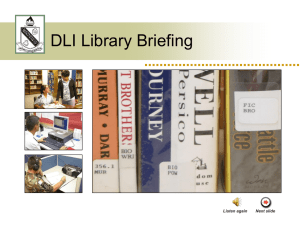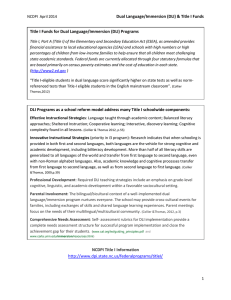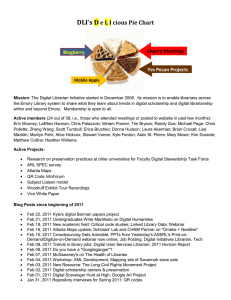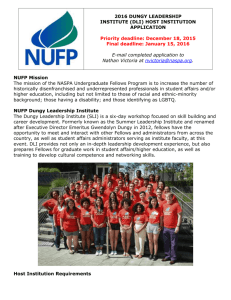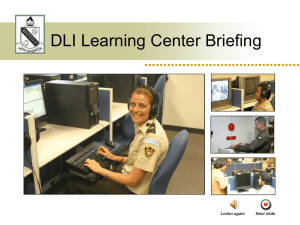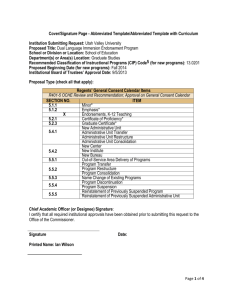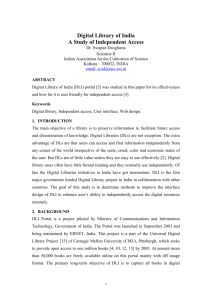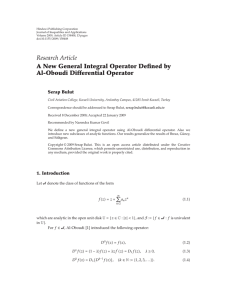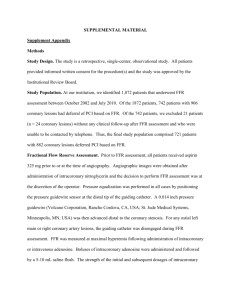For more information - Multilingual & Global Education
advertisement
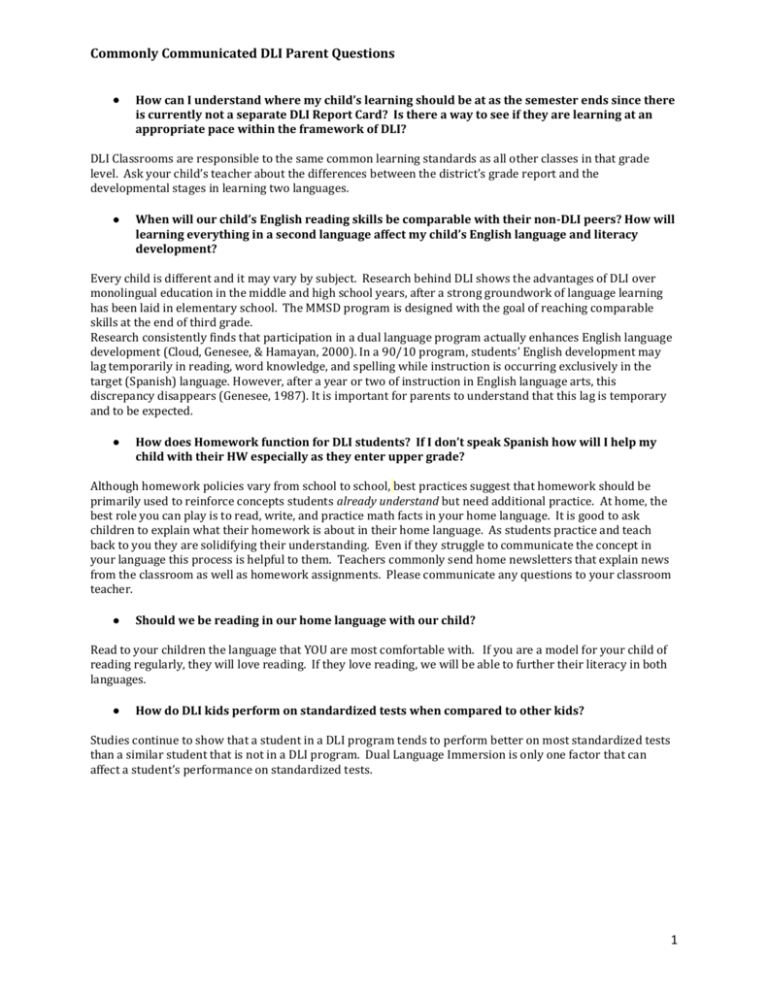
Commonly Communicated DLI Parent Questions How can I understand where my child’s learning should be at as the semester ends since there is currently not a separate DLI Report Card? Is there a way to see if they are learning at an appropriate pace within the framework of DLI? DLI Classrooms are responsible to the same common learning standards as all other classes in that grade level. Ask your child’s teacher about the differences between the district’s grade report and the developmental stages in learning two languages. When will our child’s English reading skills be comparable with their non-DLI peers? How will learning everything in a second language affect my child’s English language and literacy development? Every child is different and it may vary by subject. Research behind DLI shows the advantages of DLI over monolingual education in the middle and high school years, after a strong groundwork of language learning has been laid in elementary school. The MMSD program is designed with the goal of reaching comparable skills at the end of third grade. Research consistently finds that participation in a dual language program actually enhances English language development (Cloud, Genesee, & Hamayan, 2000). In a 90/10 program, students’ English development may lag temporarily in reading, word knowledge, and spelling while instruction is occurring exclusively in the target (Spanish) language. However, after a year or two of instruction in English language arts, this discrepancy disappears (Genesee, 1987). It is important for parents to understand that this lag is temporary and to be expected. How does Homework function for DLI students? If I don’t speak Spanish how will I help my child with their HW especially as they enter upper grade? Although homework policies vary from school to school, best practices suggest that homework should be primarily used to reinforce concepts students already understand but need additional practice. At home, the best role you can play is to read, write, and practice math facts in your home language. It is good to ask children to explain what their homework is about in their home language. As students practice and teach back to you they are solidifying their understanding. Even if they struggle to communicate the concept in your language this process is helpful to them. Teachers commonly send home newsletters that explain news from the classroom as well as homework assignments. Please communicate any questions to your classroom teacher. Should we be reading in our home language with our child? Read to your children the language that YOU are most comfortable with. If you are a model for your child of reading regularly, they will love reading. If they love reading, we will be able to further their literacy in both languages. How do DLI kids perform on standardized tests when compared to other kids? Studies continue to show that a student in a DLI program tends to perform better on most standardized tests than a similar student that is not in a DLI program. Dual Language Immersion is only one factor that can affect a student’s performance on standardized tests. 1 Commonly Communicated DLI Parent Questions What can I do to support my child’s immersion experience if I do not speak the second language? Parents should be knowledgeable about dual language education, make a commitment to keep their child in the program, and support their children’s use of the target language outside school. One way to support the use of the target language outside of school is by providing reading materials, games, and language enrichment activities at home in the target language. Parents can provide opportunities to enhance their child’s native language and literacy development. Reading to their child at night in the native language is one example. Research shows that the stronger the development of the native language, the greater the proficiency in the target (Spanish) language. Therefore, children who enter a dual language program with a strong base in their native language will succeed more easily than those whose native language skills are not as strong. Will my child become proficient in the second language? How long will that take? Generally it takes students from 4-10 years to achieve cognitive academic language proficiency in a second language. Students at this stage will be near-native in their ability to perform in content area learning. The time it takes to learn a language is influenced by many factors, including students’ personality and motivation, teacher expectations, parental support, program leadership, and support at both the school and district level. Student success requires the active involvement of all of these stakeholders. Achieving high levels of oral and written proficiency in a second language is a long-term process. A long-term commitment is essential, and parents need to understand that native-like proficiency in every skill area is unlikely. Still, dual language students will have a strong second language base upon which to continue moving toward full proficiency and to develop proficiency in additional languages. Is DLI appropriate for children with Special Needs? Yes. MMSD complies with state and federal regulations for Special Education regardless of program type. Arrangements may vary depending upon the building and the needs of your child. Which schools have MMSD DLI Programs? MMSD is currently operating Dual Language Immersion at the following schools: Chavez Elementary, Glendale Elementary, Leopold Elementary, Lincoln Elementary, Midvale Elementary, Nuestro Mundo Community School, Sandburg Elementary, Sennett Middle School and La Follette High. For more information: Rhea Vedro Family Liaison for Dual Language Immersion Programs Coordinadora de enlace familiar del programa bilingüe de doble inmersión Office of Multilingual and Global Education Madison Metropolitan School District 608-663-5489 rvedro@madison.k12.wi.us www.mmsd.org/dli 2
